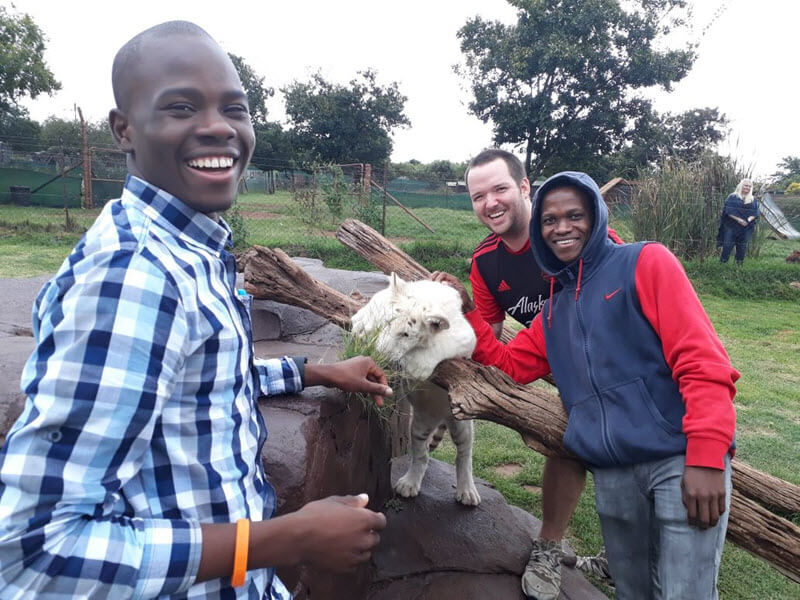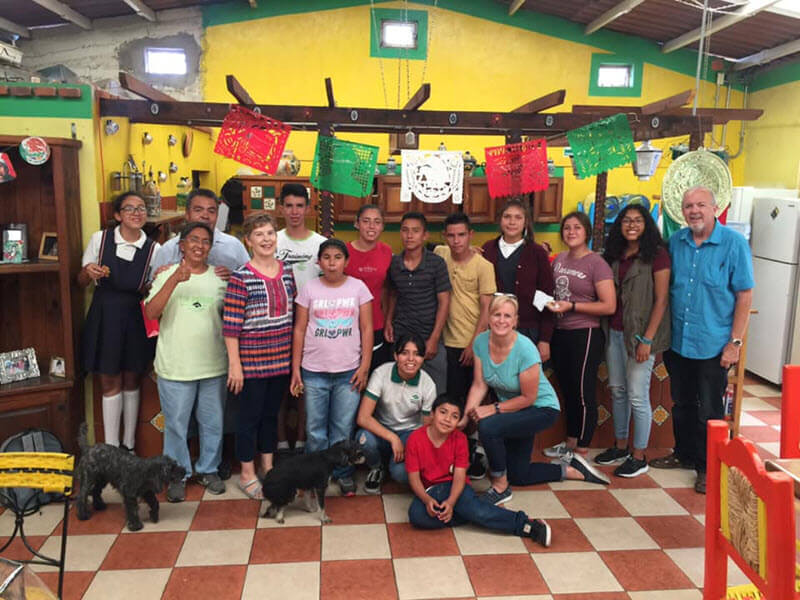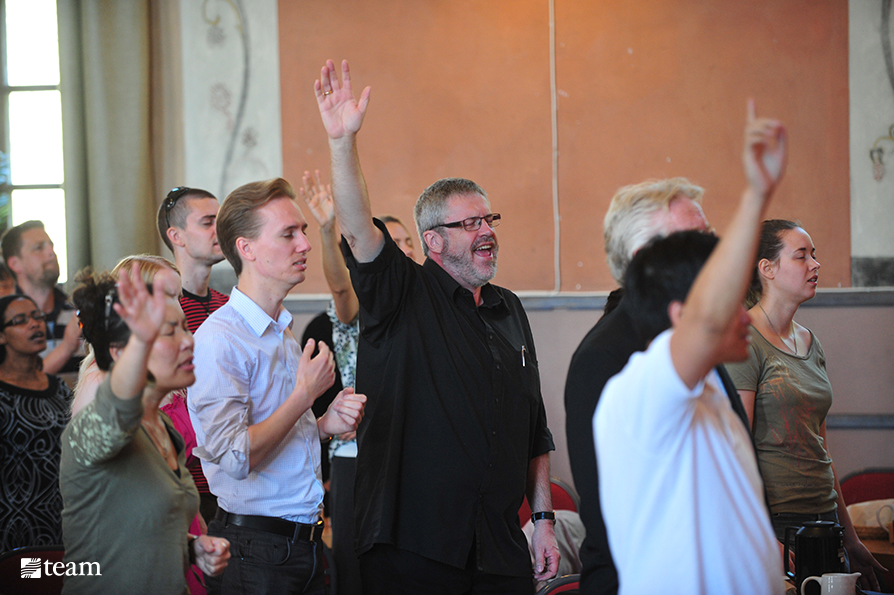
Becoming a Missionary
6 Ways to Serve in Cross-Cultural Ministry Before the Mission Field
August 20, 2020
by admin

If you’re the typical aspiring missionary, there’s a question you may be dreading: How are you making disciples in your everyday life?
When you’re applying with quality missions agencies, the question is unavoidable. Before you go through the trouble of raising support, learning a new language and moving abroad, agencies want to know you have a good chance at success.
“If a person isn’t involved in ministry and reaching out for the Lord back home, it will be even harder to do that when they arrive in a new culture,” says TEAM missionary Jann Vander Mey.
But if you’re like many North American Christians, no one’s really taught you how to make a disciple. And making disciples in a local, cross-cultural context can almost be a radical act.
So, how do you do learn to make disciples — and even minister cross-culturally — before becoming a missionary?
We asked missionaries around the world how they learned to do ministry at home. The good news is, there are many ways to serve in cross-cultural ministry before the mission field. And the experience will build a strong foundation for everything you do abroad.
1. Join a Cross-Cultural Church Plant
If you think God is calling you to do something abroad, the best way to prepare is to start doing it here. When Art Reyes sensed God calling him to plant churches in Mexico, he joined a Hispanic church plant in Chicago. His future wife, Vicki, later joined him.
“It is far superior to a two-week mission trip since you can be part of the ethnic ministry for years and get a more realistic idea of what ministry would entail,” Vicki says.
The people in the church plant were largely working class, first-generation Christians — the same demographic the Reyeses now minister to in Mexico. In those early years of Chicago ministry, Art and Vicki learned how to minister to people struggling through infidelity, poverty and pressure from their old religious leaders. The couple learned how Hispanic people relate to each other and what they value.
All of these lessons helped the couple figure out what further training they needed and what ministry resources would be helpful in Mexico. Plus, it gave them real confidence that God could use them on the field.
2. Teach English as a Second Language
Teaching ESL is one of the most common ways to serve in cross-cultural ministry before the mission field. You can do it without any language training, and most communities have an ESL program, whether it’s through a church or local school. Plus, because ESL is all about conversation, it’s a natural way to build friendships and talk about the deeper things in life.
But ESL ministry doesn’t have to stay in the classroom.

Teaching ESL in the U.S. gave Jann and Paul the skills and cultural understanding they would need to build a thriving ministry in Mexico. Photo courtesy of Jann Vaner Mey.
Jann and Paul Vander Mey found that teaching English opened the door for genuine friendships. They got to invite people to their home, and Jann started a Bible study with her students. They walked with their new friends through difficult times.
Now, as TEAM missionaries in Mexico, the couple has used these skills to build a vibrant ESL ministry that leads people to Christ.
3. Find a Local College Ministry
For the novice disciple-maker, college ministries offer structure, ministry training and, often, exposure to students of other cultures. Whatever your future ministry, these skills will be valuable on the mission field.
Kit Tischler served with InterVarsity Christian Fellowship during all four years of college and for four years after graduation.
“It definitely prepared me … just to be able to do evangelism, have a lot of Bible training, learn about working with younger people and just the grace and patience and love it takes,” Kit says.
In addition to foundational ministry skills, Kit learned the importance of rest and balance in full-time ministry life. He learned how to be with students and how to build healthy rhythms. Plus, he reminds future missionaries that the more time you spend preparing at home, the more time you have for actual ministry abroad.
4. Serve in a Missional Clinic
Real world experience is crucial for anyone pursuing medical missions. But where should you get that experience? For Amie Bockstahler, the answer was both a standard hospital and a clinic for underprivileged people.
While the hospital taught Amie a higher level of care, the clinic taught her how to work with limited resources. She got to talk about Jesus with people from different backgrounds. She learned how it felt to be the only white person in a room.
Today, Amie is a TEAM missionary, serving impoverished people at a clinic in Guatemala. When she first got there, she says, “I felt like all of my weaknesses were blaringly obvious.” But her cross-cultural ministry before the mission field also gave her confidence.
In the face of challenges, Amie can now say, “OK, I’ve been in this situation before. I’ve seen God work. He’ll do it again.”
5. Attend a School of Ministry
At this point, you may think, “These are great suggestions, but you don’t understand. I really have zero experience in ministry.” That’s where Caitlin Leamon was when she sensed God calling her to be a missionary in Ireland.
Determined to serve, Caitlin started looking for training, and she found the City Impact Leadership School in San Francisco. Students in the program not only learn the Bible, but they also serve an impoverished community through a variety of ministries.

Ministry schools can provide a biblical education as well as practical ministry experience that every missionary needs. Photo courtesy of Caitlin Leamon.
“I can know everything in the world, but if I’ve never had a conversation with someone about Jesus, the first time is gonna be a little shaky,” Caitlin says.
But through a year of practice, Caitlin learned how to have natural conversations about her faith. She learned how to discern where God is working and where she needs to be still. These skills have been critical in Ireland, where many people are leery of the Church and building trust takes time.
Attending a ministry school requires a willingness to sacrifice both time and money. But these are sacrifices every missionary must make. If you’re in a season of life where you can spend a year in school, it’s a great option to consider.
6. Make Friends with Your International Neighbors
We often gravitate toward the structure of formal programs, but much of missionary work happens through regular old friendship. Thankfully, that’s something most of us can learn to do in our home countries.
Shelly Schaefer happened to live in an apartment complex with a large Indian population. She’s naturally shy, but she decided to invite her Indian neighbors to her family’s holiday celebrations. She and her husband shared food and Scripture, which opened the door to spiritual conversations. Shelly also started serving her neighbors in practical ways, such as driving them to appointments.
Despite her fears, Shelly’s neighbors were touched that an American family wanted to befriend them. In the meantime, Shelly and her family grew comfortable in cross-cultural settings, making the transition to the mission field much easier.
You may not have an immigrant population next door, but there are likely a variety of cultures in your community. If you can’t find international neighbors, befriend people of different races, religions or socioeconomic statuses. You’ll still grow in the skills of listening to others and understanding different perspectives.
Begin Now
Explore your local community, and you’ll likely find many more ways to serve in cross-cultural ministry before the mission field. You may even find opportunities to serve the people group you want to serve abroad.
The important thing, though, is to start serving now.
Don’t listen when fear says you won’t be able to figure it out. Don’t let pride keep you from stumbling along the way. You will make mistakes, but you will also grow. And when you finally go abroad, you will take with you an education and a faith that cannot be bought.
Related articles

